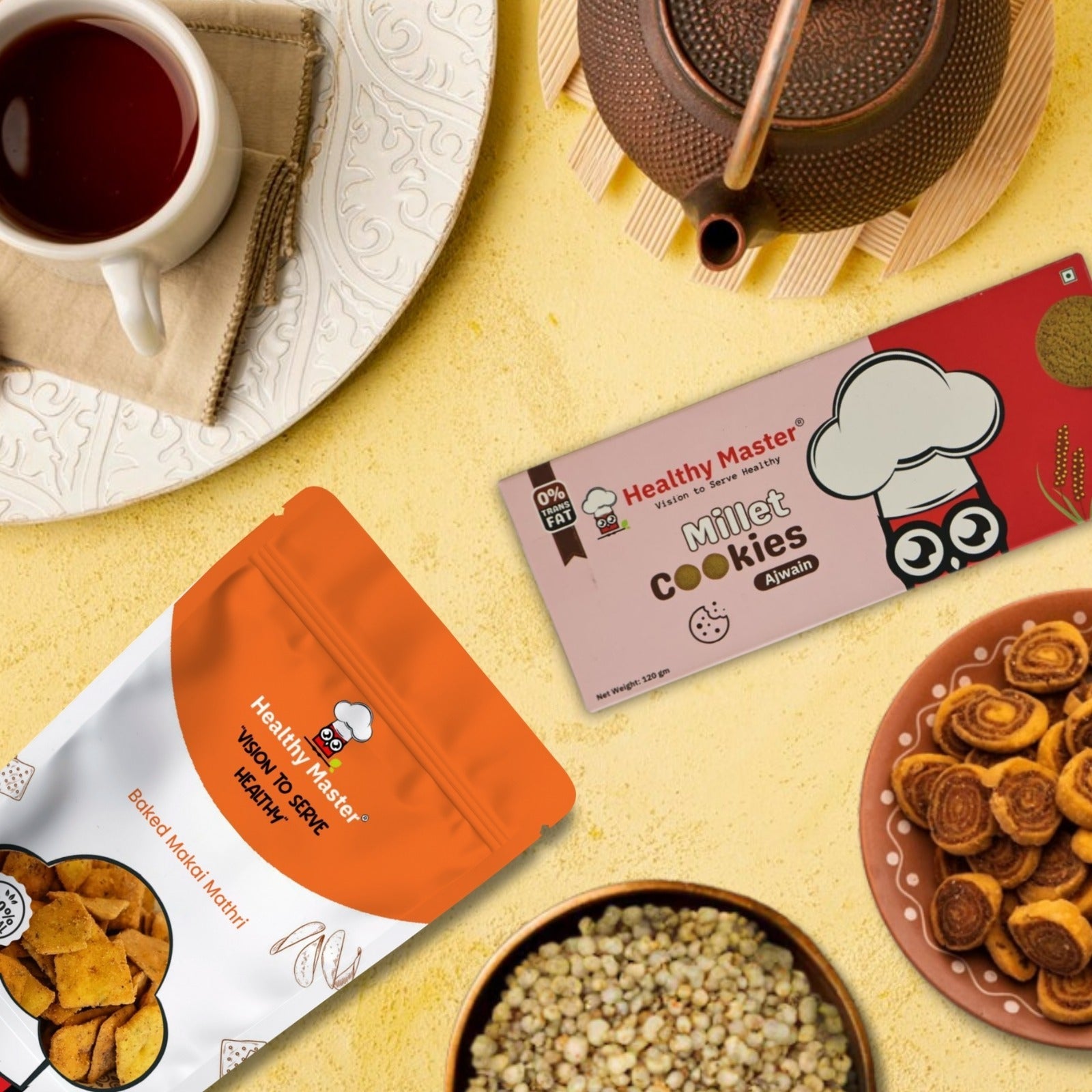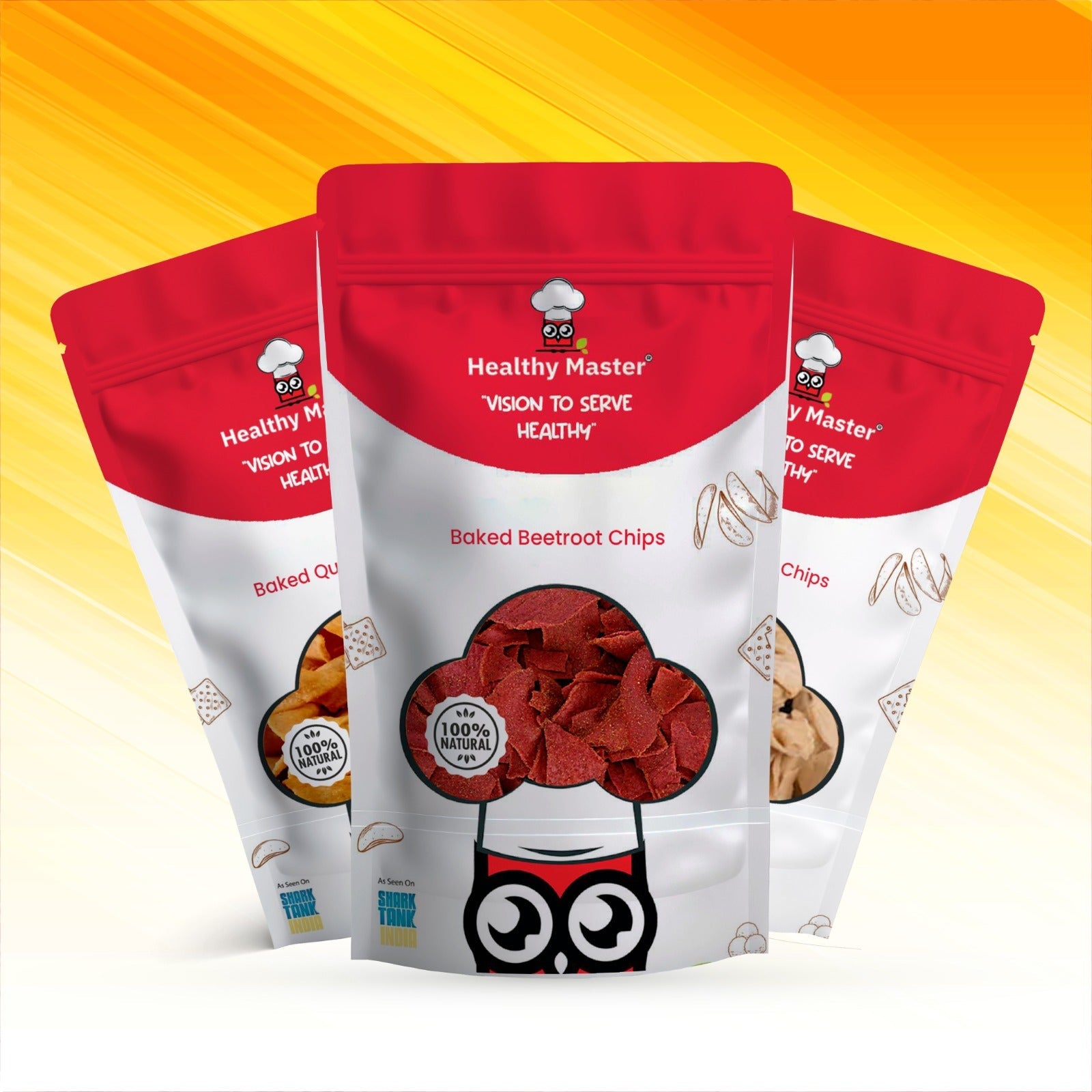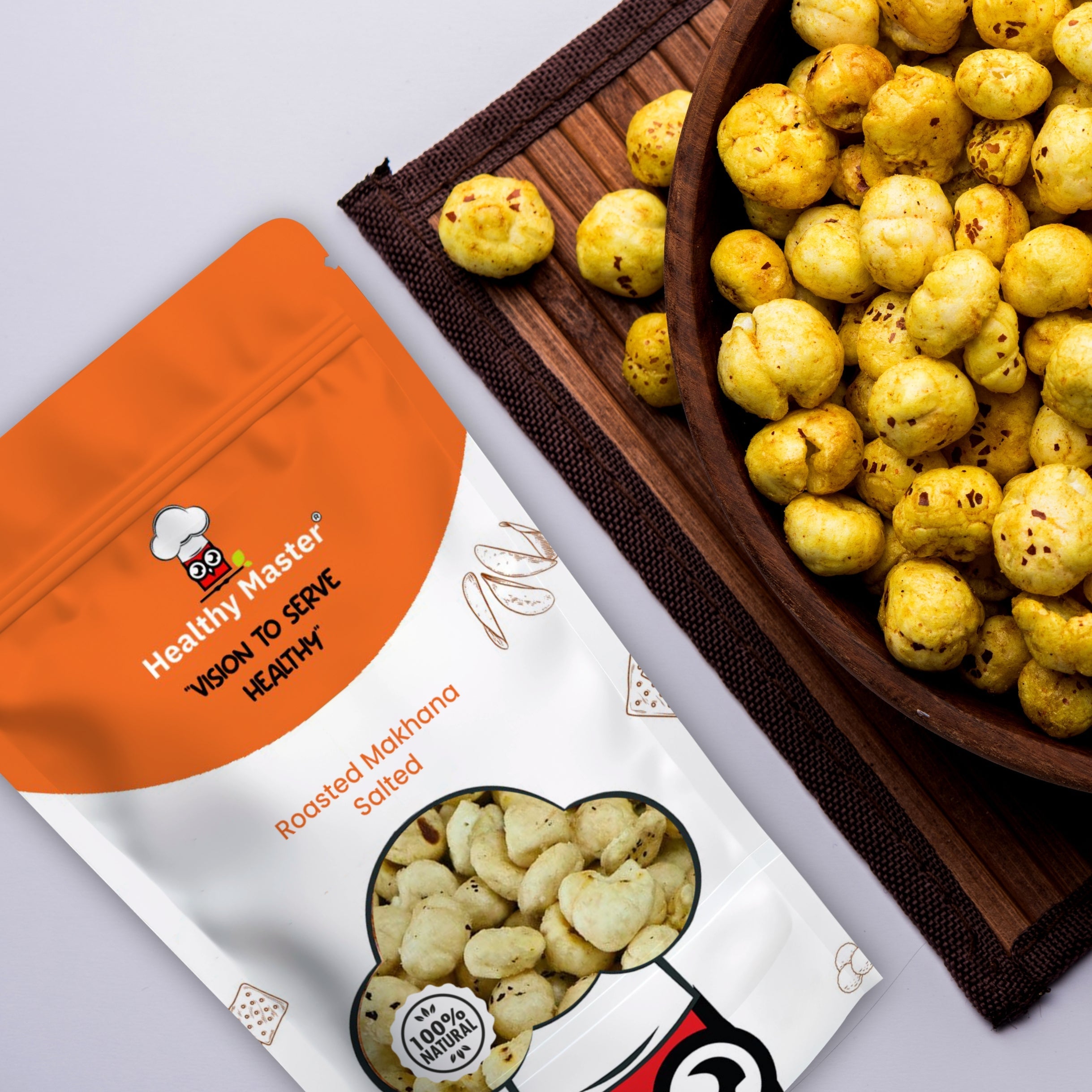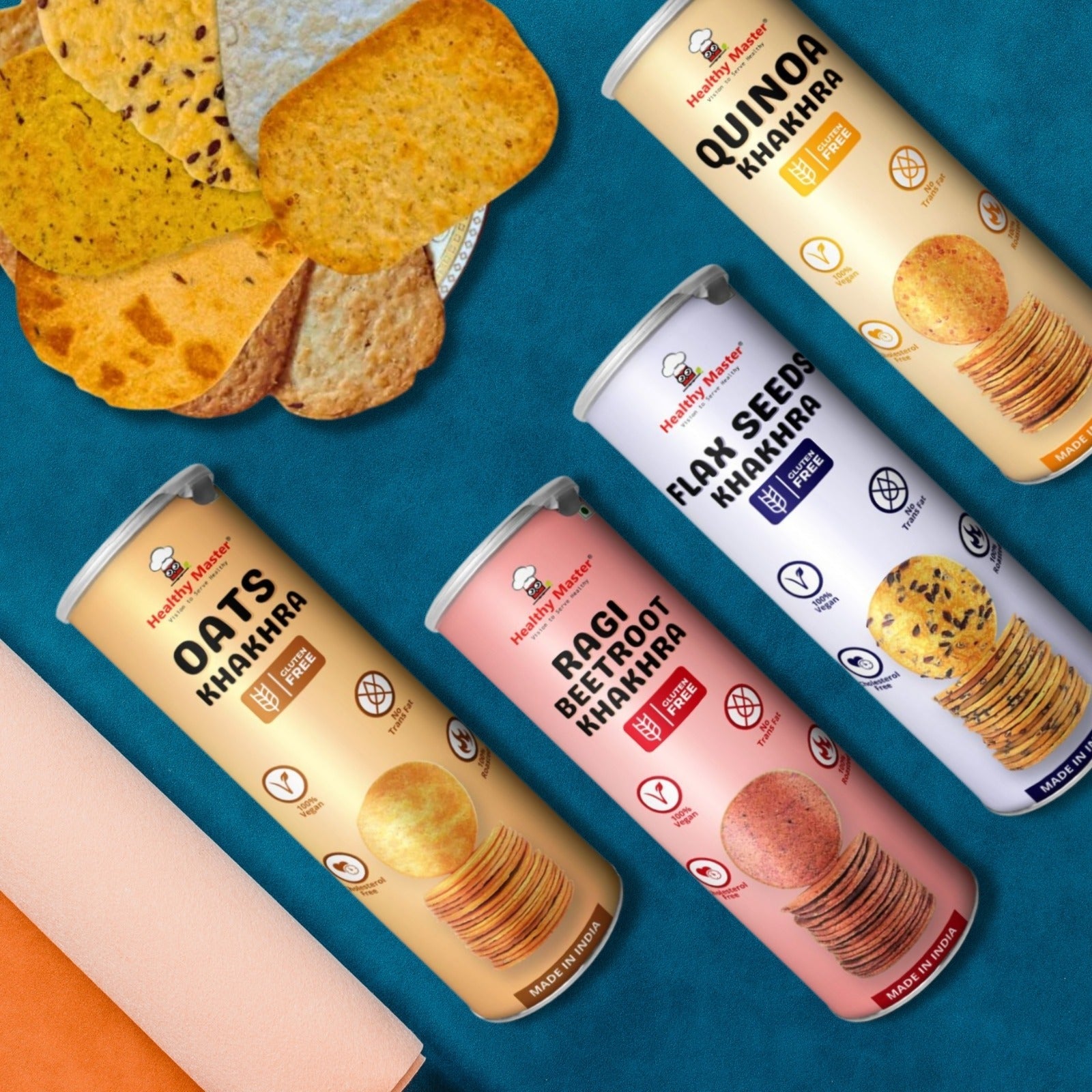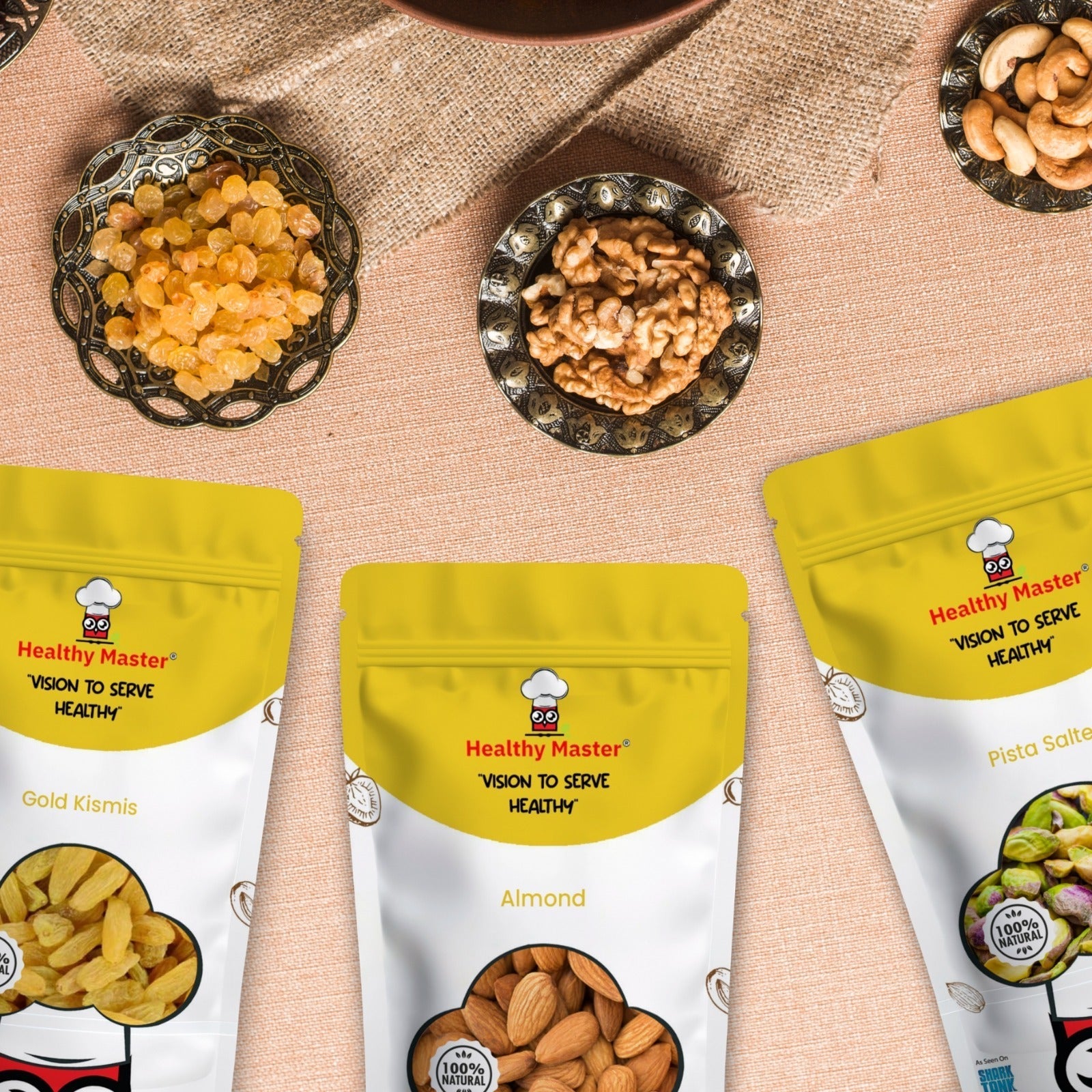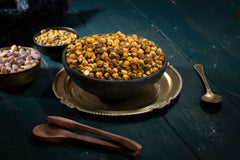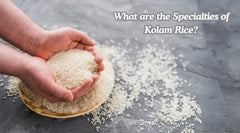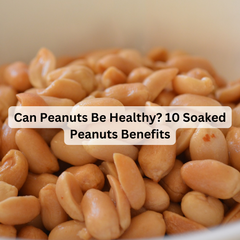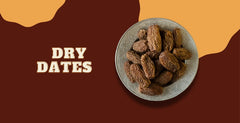The humble millet has been around for centuries. It’s a staple food across the world, known for its nutritional benefits, and is both consumed and cultivated in more than 35 countries. Millets are finally getting the recognition they need. These little grains have been around for thousands of years, and it is their time to shine once again. Millet has a variety of health benefits, such as providing an abundant source of nutrients such as magnesium and calcium.
What are Millets?
Millet is a small, round, brownish seed found in many different plants. They vary greatly in size, color, texture, firmness, and flavor depending upon their source. There are hundreds of millet brands in the market today. Because of their incredible health benefits, you’re going to want to eat plenty of millet seeds in your diet.
What are the different kinds of millets?
Millet is a collective name given to many small-grained kinds of cereal. These come in various sizes and varieties and are used for several purposes.
So, what makes millet better than rice and wheat?
Millet are not the same as other cereals in the sense that they are less calorie-rich. In fact, millet has not more than 207 calories per 1 cup serving. In comparison, rice and wheat are richer in calories, having about 350 to 450 calories per 1 cup serving. This means a person who is diet conscious may like to include millet in his or her diet plan.
Millet has always been an integral part of Indian food. Even the most ancient Indian civilizations have had a regular supply of it. Millet is a rich source of proteins, fibers, and carbohydrates. The energy is released slowly and steadily which makes them a great grain during the night hours for athletes. Millet also has one of the highest levels of nutrients among the grains known to mankind.
Millet has always been the poorer cousin of rice and wheat in the Indian mindsets. Even today, people do not realize the nutritive value that millet provides. The riches of millet is yet to be explored worldwide.
What are the benefits of millets?
Millets are a type of edible grain that is useful for the body and mind. These include areas like immunity, carbohydrates, proteins, vitamins, and minerals. Millet was grown well in India since 2000 BC. There are several advantages millet have to offer. They are gluten-free, cholesterol-free, and easy to digest. The Health Benefits of Milletsinclude weight loss by reducing excess body fat, control of diabetes, strengthening the immune system, treating constipation, and other health benefits. Millet is one of the most nutritious grains that can help you achieve your ideal weight and improve your overall health, as well as solve long-term health problems like diabetes, heart disease, osteoporosis, skin issues, endocrine problems, and colon cancer. Millet is extremely beneficial for patients suffering from anemia. The high calcium content present in these grains is easily absorbed by the body, thereby helping to strengthen bones and accelerate the growth of children.
Regulate Blood Glucose Levels
Millets have a lower glycemic index than most other grains, which means they regulate blood glucose levels better than other whole grains. Millet has shown that they are an effective alternative to grains for people with diabetes or carbohydrate intolerance. Millet has properties, which assist in stabilizing the blood glucose level. Millet regulates blood glucose through saponin and niacin present in it. Saponin can lower cholesterol and homocysteine levels in the blood vessels. It also lowers down bad cholesterol and raises up good cholesterol.
Help In Weight Loss
The nutritional value found in these grains is useful for those looking to shed excess carbohydrates from their diet. Plus, the ability to provide for the daily requirements of an individual using millets is something that cannot be matched by other types of grains. We all know that Millet are natural weight loss foods. People with obesity also use these Millets to shed off extra kilos from the body in an effective manner.
Good For Heart
Millets are good for the heart, if we include them in our diet we can keep the blood pressure perfect. Millets are high in soluble fiber which is helpful in lowering cholesterol and reducing heart problems. Without consuming millets it is difficult to maintain good health because they protect against cardiovascular diseases by lowering bad cholesterol and triglycerides. Even though millets are low in fats, they contain monounsaturated fatty acids and lots of vitamin E that helps lower bad cholesterol and prevent heart disease.
Millets Battles Cancer Cells
Millets, the staple food of India and the third-largest cereal crop in the world, is also a wonder medicine. Recently scientists have proved that it is one of the most promising anti-cancer agents available now. They are believed to prevent many diseases and cleanse the human body. Millets are about 7000 years old grain. While grains like wheat, rice, etc need sifting before usage, millets do not need any process except washing.
Millets Promote Digestion
Millets help to maintain a healthy digestive system and promote the secretion of hydrochloric acid in addition to the good bacteria necessary for digestion. Millets help in the production of pancreatic fluid which is responsible for digestion and facilitates metabolism. Millets are known to be good for people who have sluggish bowels and people that suffer from bouts of indigestion.
Millets are High in nutrition
Millet is frequently known as the grain of sustenance. The Millets are high proteins, rich carbohydrates food which contains an impressive amount of vital nutrients. These are gluten-free grains. They are considered a vital part of an ancient diet that was devoid of refined grains and sugar-based products.
Millets have Less calorie count
Millet is the best alternative to rice, wheat, and maize. Millet can be eaten with curries or cooked as khichdi. It can also be added in soups, salads, etc for taste enhancement. Millets have a low-calorie count and are a rich source of essential nutrients like carbohydrates, proteins, amino acids, fats, minerals, and vitamins.
Improves immunity
It’s been found that millets have some beneficial activity on immunity. It boosts the immune system and helps in the prevention of infections. Not only this, but it also provides essential minerals like iron, manganese, magnesium, phosphorus, potassium, copper, selenium, and zinc. Millets provide a natural immunity against several diseases that attack our health. The use of millets has some scientific backing on these claims. We have already written on how millets can keep you fit and healthy, particularly how it regulates blood glucose levels.
Satiates Hunger
The ancient rice grain Millets can be a boon to nutrition in modern times for sustaining healthy bodies, especially when one is leading an active life. The high carbohydrate, protein, and fiber contents make it an easy choice for filling up one's tummy without making one feel like they had just eaten a whole bowl of rice.
Millets are good for coronary diseases
Millets are rich in dietary fiber and are good for coronary disease patients. Dietary fiber contains about 75% carbohydrate by weight; it is not digested or absorbed in the small intestine but ferments in the colon and produces some beneficial effects on gut function. There are clear indications available in the classical Ayurvedic works like Charaka Samhita and Sushrut Samhita of millet grains being used for medicinal purposes.
Millets Help in detoxification
We all have gone on a detox diet at least once in our lifetime. A detox diet helps us to live a healthy lifestyle and reduce the number of toxins that enter our bodies. Millet is often considered as a natural approach towards body cleansing and have proven to be effective in improving colon health, boosting energy levels, and reducing inflammation. They also have more fiber than other cereals. Millets are considered one of the best detoxifying food as they contain beta-glucan that stimulates white blood cell activity.
Millets Make bone stronger
Strong bones are important for overall health. Calcium is a nutrient that is needed to build strong bones, but it can be found in foods that contain vitamin D or other nutrients that help you absorb calcium. Millets have this nutrient, so it makes bone stronger. Its values have been known since time immemorial and were once considered as the complete food due to its composition of sixteen amino acids, vitamins, minerals.
Millets are rich in antioxidants
Antioxidants are very essential for the prevention of degenerative diseases and improvement of immunity. Millets also contain lycopene and lutein, which are good for prostate health, and also carotenoid precursor, which converts to vitamin A in the intestines and bone marrow. Millet is rich in antioxidants. They say that the more antioxidants a food has, the richer it is.
Millets Fight inflammation
Millets is a whole grain, drought-tolerant crop and can be used to fight inflammation from the inside. Millet is rich in essential nutrients such as B vitamins, protein, dietary fiber, iron, magnesium, etc. With rising global concerns regarding the harmful effects of inflammation on health, millet has a lot more to offer than just fighting hunger.
Millets are rich in micronutrients
Millets are rich in micronutrients such as vitamin B and iron. They are good for diabetics as they do not cause hardening of the arteries like wheat flour. They are soft as well, and hence promote rapid absorption of nutrients into the human system. Millet is a whole grain, which contains vitamins A, D, E, K, B2, potassium, zinc manganese, etc.
Millet Benefits For Skin
Millet is a super grain that can be prepared in many ways. It is extremely beneficial for the body. The millet can help you shed off excess weight and at the same time improve your skin health. There are several health benefits to millet. Among the various millet benefits for hair, skin, and overall health is its ability to lower serum cholesterol levels.
Millet Slows Down Muscle Degradation
Millet has been touted as the best food for losing weight, but there’s another use you didn’t know about. It slows down muscle degradation after exercise – which ultimately helps us gain strength and muscle mass. It is a rich source of phytonutrients, high in protein and low in fat and carbohydrates -- making it an ideal whole food for those with diabetes and other health challenges.
Millet Relieves Menstrual Cramps
Millet is a miracle food you can eat to combat menstrual cramps or back pain. It is rich in fats Omega 3 and 6 and is a good source of amino acids and protein. It also contains zinc, which aids in blood clotting and muscle growth.
Millet Improve Skin Elasticity
Millet improves skin elasticity, moisturizing, hydration, and skin flexibility. Millet is rich in Vitamin E, amino acids, magnesium, and fatty acids which are good for the skin. Your skin will look smoother and more elastic after consuming millet. Its health benefits are so remarkable that it’s even been called one of the seven superfoods to add to your diet because of its high nutritional value.
How to consume millets
Millets are easy to grow and digest. This makes millets important foods far away from homes. Millets consist of rich minerals, vitamins, fibers, carbohydrates, oils. These nutrients make millets a befitting food for the proper functioning of the human body. Millets also strengthen bones. Many elderly people throughout India consume millets for good health and long life.
Healthy Master is a leading provider of tasty and healthy snacks and a pioneer in creating products that promote health, wellness, and sustainability. Millets are nutritious, and these snacks are not only helpful for our health but also good for children's diet. We make sure that the millet used in these snacks is prepared to be more resistant to disease and pests. Our products convert millets into healthy snacking staples that are tasty, affordable, and easy to prepare.
Millet Snacks Chatpata
We've made a delicious new dish that will delight your taste buds. These popped pearl millets flavored in a spicy masala are a healthy alternative to fried foods. Our millets are delicious without compromising on health.
Millet Snacks Pudina
Loaded with the goodness of pearl and sorghum millets, the Pudina millet snack is a delicious and healthy snack. The unique combination of pearl millet and sorghum fillings paired with great taste will satisfy your taste buds and hunger.
Millet Snack Tomato
This millet snack packs in every essential nutrient your body needs to stay healthy. A summer delight, this snack is made with pearl millet and sorghum millet – a true delight.
Millet Noodles
There’s no maida, so these noodles have a completely different, natural taste. They are healthier and easier to digest. These millets are the most wholesome ingredient, extremely nutritious, and full of flavor. Our Millet Noodles are completely gluten-free with no hidden calories or preservatives.
Millet balls Cheesy Oregano
These healthy bites make for a great snack with a little cheese. Our mouth-watering bites are loaded with the cheesy goodness of millets.
Millets for Immunity Building
Millets are small seeds consisting of several species of cereal grasses belonging to the Poaceae family. Along with rice, wheat, corn, and sorghum millets form the backbone of food grain consumption in Asian countries. They are a great source of energy and nutrient for people suffering from cancer, diabetes, goiter, and anemia. Rich in Vitamin B1, thiamine, and minerals such as magnesium and iron millet help boost immunity and provide a strong defense against diseases.
Millets are an important source of nutrients that can be added to your breakfast, dal-rice, or salads. This addition is a great way to repel common infections, food-borne diseases, and fight against bacterial and viral infections. Millets enhance metabolism and help to balance the combination of good bacteria and friendly microorganisms in the gut, boost the immune system, and fight diseases caused by microbial imbalance.
Side-effects of Millets
Oxalates in millets
Millets have higher oxalate content than other cereals, and this is what may prevent them from being a perfect choice for people who are looking to limit their intake of oxalate-containing foods.
Goitrogens in millet
Millet, a highly nutritious whole grain, is also high in antinutrients called goitrogens. These compounds block the body’s ability to absorb key nutrients, most notably iodine and thiamine. Goitrogens can significantly impair the thyroid gland’s ability to produce the hormones needed to stay healthy and control your weight. Fortunately, millet has lots of health and weight loss benefits that make it worthwhile for you to eat despite the goitrogen content.
Conclusion
Although millets are a rich source of nutrition, you should be mindful and respect the balance in their consumption. Some millets, such as ragi wheat, can naturally be consumed every day without any ill effects while consuming other millets must be done in moderation over a week. Millets offer a lot of health benefits when they are consumed daily.
 Deal of the week : Trial Snack Box - 18 Wholesome Delights Just at ₹ 899.00
Deal of the week : Trial Snack Box - 18 Wholesome Delights Just at ₹ 899.00


